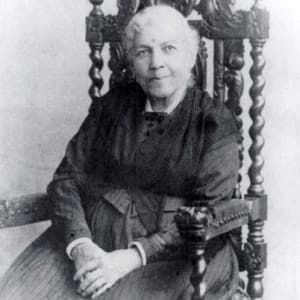
Henry the Navigator
Henry the Navigator, a 15th century Portuguese prince, helped usher in both the Age of Discovery and the Atlantic slave trade.
Who Was Prince Henry the Navigator?
Henry the Navigator was born in Porto, Portugal, in 1394. Although he was neither a sailor nor a navigator, he sponsored a great deal of exploration along the west coast of Africa. Under his patronage, Portuguese crews founded the country's first colonies and visited regions previously unknown to Europeans. Henry is regarded as an originator of the Age of Discovery and the Atlantic slave trade.
Henry the Navigator's Significance in History
Henry is often credited with beginning the Age of Discovery, the period during which European nations expanded their reach to Africa, Asia and the Americas. Henry himself was neither a sailor nor a navigator, his name notwithstanding. He did, however, sponsor many exploratory sea voyages. In 1415, his ships reached the Canary Islands, which had already been claimed by Spain. In 1418, the Portuguese came upon the Madeira Islands and established a colony at Porto Santo.
When these expeditions began, Europeans knew virtually nothing about the area past Cape Bojador on the west coast of Africa. Superstition had kept them from going farther. But under Henry’s orders, Portuguese sailors moved beyond Bojador. By 1436, they had traveled as far as the Rio de Oro.
In addition to sponsoring exploratory voyages, Henry is also credited with furthering knowledge of geography, mapmaking and navigation. He started a school for navigation in Sagres, at the southwestern tip of Portugal, where he employed cartographers, shipbuilders and instrument makers. It was from Lagos, near Sagres, that many of his sponsored trips began.
The Slave Trade
Henry has the dubious distinction of being a founder of the Atlantic slave trade. He sponsored Nuno Tristao’s exploration of the African coast, and Antao Goncalves’s hunting expedition there in 1441. The two men captured several Africans and brought them back to Portugal. One of the captured men, a chief, negotiated his own return to Africa, promising in exchange to provide the Portuguese with more Africans. Within a few years, Portugal was deeply involved in the slave trade.
Henry died in 1460 in Sagres, Portugal. By the time of his death, Portuguese explorers and traders had advanced as far as the region of modern-day Sierra Leone. It would be another 28 years before Vasco de Gama, under the Portuguese flag, would sail clear around Africa and complete an expedition to India.
Early Influences
Henry the Navigator was born in 1394 in Porto, Portugal. He was the third surviving son of King John I and Philippa of Lancaster.
In 1415, Henry, his father and his older brothers led an attack on Ceuta, a town in Morocco along the Strait of Gibraltar. The attack succeeded, and Ceuta fell under Portuguese control. Henry became fascinated with Africa, a continent about which the Portuguese knew little. He developed a desire to learn about the Muslims who lived there, primarily in hopes of conquering them and spreading Christianity. And he became aware of Africa’s many resources, which he hoped to exploit for Portugal’s gain.




